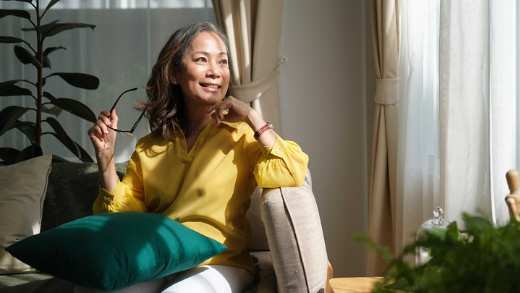Single? Seven things to think about when planning retirement
Single people might have to plan earlier – and smarter – to afford the retirement of their dreams.

Holidays, council tax, household bills: just some of the ways life can be more expensive for single people. And when it comes to pensions, those that are single might need to plan a little bit earlier – or just smarter – to have the retirement they desire.
Here are seven things to think about when planning for your retirement:
1. Retirement can be more expensive for single people
The Retirement Living Standards website can help you understand what income you may need in retirement. This shows that a single person spends around two-thirds of what a couple spends, mostly because we pay similar bills whether there’s one or two people in the house. Those with fewer relatives close by may also need to factor in other costs like long-term care for later in life.
2. It can be harder to save when single
Because the cost of running a household is similar, people living on their own may find they spend more on everyday costs and bills than two-adult households who can split their costs. There might also be unexpected extra costs for single folk, like paying for tradespeople – DIY tasks are often a two-person job. That means it can be trickier to put money into pensions and investments, even though it could be more needed. So…
3. It’s worth reassessing your spending
It’s important to have a good understanding of what you’re spending each month and see if any savings can be made on household bills.
4. Women in particular need to think about retirement planning
That’s because women tend to have a smaller pension than men for lots of reasons: they often don’t think about pensions when divorcing and may have less money to save because of the gender pay gap. Single women might prioritise their social life and single parents are likely to prioritise their children.
5. Understand your current financial status
It can be hard to know how much to save for your retirement. But because there’s less room for error, it really helps to know exactly what’s happening with your pensions and investments – things like how many pension pots you have, what the projected income is and what return you’re getting on your investments.
6. Figure out what you’ll need in retirement
Part of understanding your financial status is knowing the target income for your retirement. The Retirement Living Standards figures are a good guide, as they give you options depending on how lavish or modest you want your retirement to be. Once you know what you can expect in retirement as it stands and you know what your target income is, you can figure out how to bridge the gap. You can do things like save more, delay your retirement, or…
7. Make your money work harder
There are lots of things you can do to make it easier as a single person in retirement. For example, take all the tax advantages going – it adds up to a massive amount over a lifetime. This could mean putting more money into a private pension or workplace pension rather than investments, to benefit from increased employer contributions where applicable as well as tax relief on your contributions. And it’s worth checking that you’re getting the right amount of tax relief if you pay a higher-rate tax. One thing to keep in mind – tax rules can change and depend on your personal circumstances.
Sometimes, even if your employer's payroll department take your contribution directly, you still need to claim the extra back through HMRC or via your self-assessment tax return. You can also use your full tax-free ISA allowance to save.
If you have a few pension pots, you could combine them into one, so you’re not paying more charges than you need to. Look for the one with the lowest costs, most suitable investment choices and retirement options. Speaking to an adviser is usually a good idea as there could be risks involved. There may be some instances where you have to speak to an adviser and you'll need to pay for this advice.
If you don't have a financial adviser already you can find one at Unbiased, or explore getting advice from Aviva Financial Advice.
Some people, especially when they’re younger, prefer a higher level of investment risk for a pension or investment. Others, especially those about to retire, prefer a lower level as they’re more focused on reducing the risk of large changes in the value of their pension. So review the risk across your portfolio to make sure it’s just right – it’s a personal choice but one an adviser can help with too.
The value of an investment can fall as well as rise, so you could get back less than invested.
Single people might have a little more financial pressure when it comes to retirement, but it means that you’re fully in control of your plans and, once you hit the hallowed age, you can spend it doing exactly what you want when you want.
Next article
A guide to an early retirement
Dream your early retirement lifestyle goals and find the steps to reach them with our guide.



